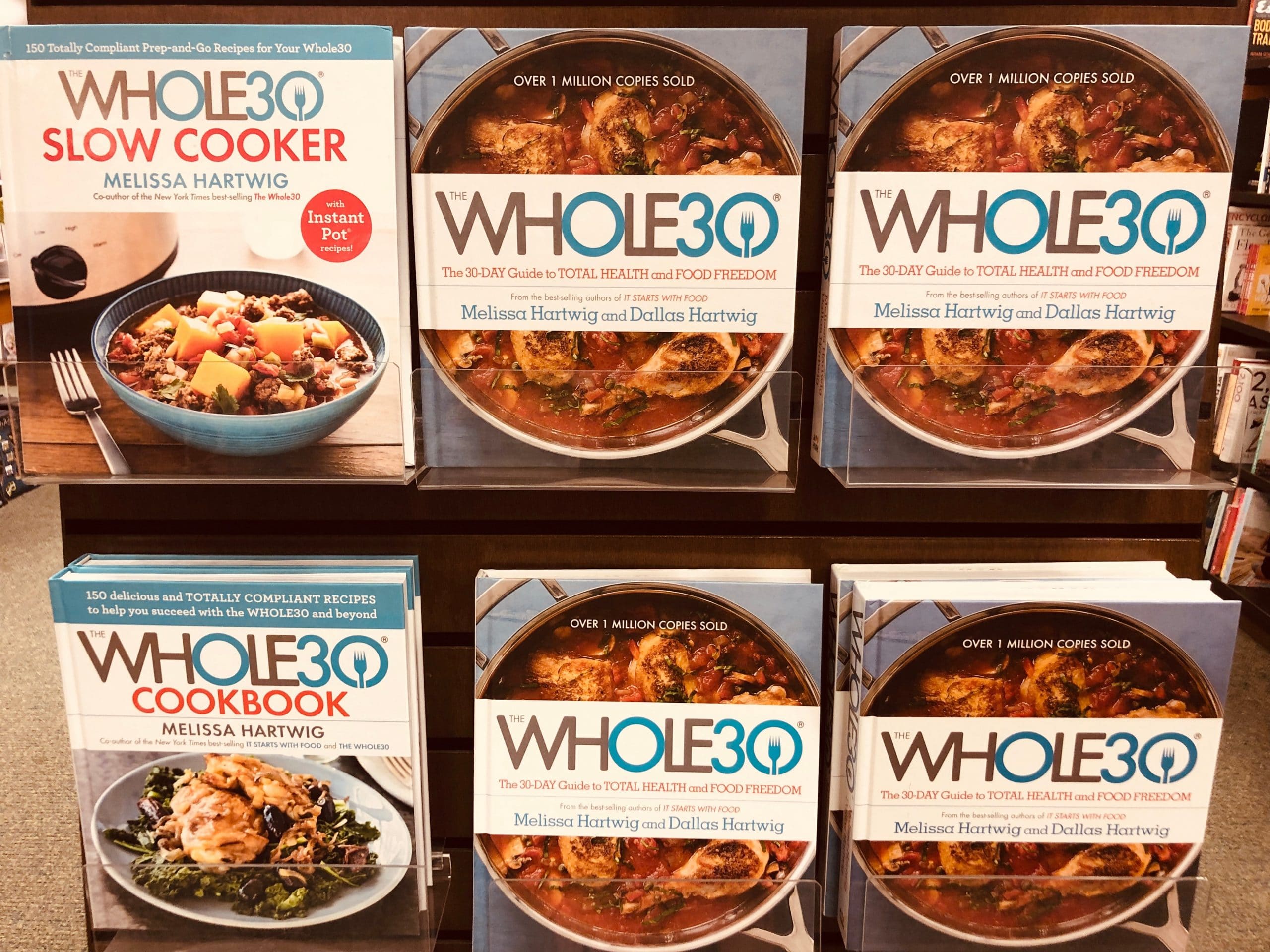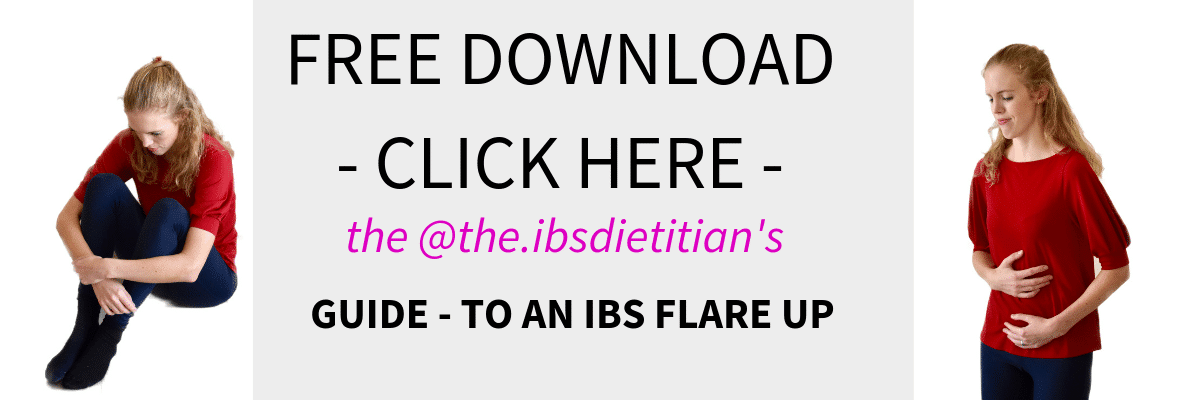Is The Whole 30 Diet Good For IBS? | THE IBS DIETITIAN
- Dietary Advice (non Low FODMAP)
You may be reading this article wondering is the Whole 30 Diet the solution to my IBS? You have likely googled this diet or seen it on social media – several sources are raving about.
BUT! I also know this is not the first diet you have come across. You have likely tried multiple diets by now and are feeling a like exacerbated.
So, before you jump on to the next band wagon hoping that this will be the thing that helps – read my article.
In this article I will look at the diet in detail and provide you advice based on proven science (not my own opinion). This will mean you get symptom relief quicker, whilst also avoiding damaging your gut further.

What is The Whole 30 Diet?
The Whole 30 diet is an elimination style diet. For 30 days you can only eat a diet made up of meat, seafood, vegetables, natural fats, spices, herbs and seasonings (1).
The emphasis being on only single ingredient foods which are not processed in any way.
Foods to Avoid Whilst on the Diet
- Grains: wheat, rye, barley, oats, corn, rice, buckwheat, amaranth and quinoa.
- Legumes: all lentils and pulses.
- Dairy: including all cow, goat, sheep milk products.
- Additives: carrageenan, MSG or sulphites.
- ‘Junk Food’: sweets, cakes, biscuits, chips, pizza. This includes modifications of healthier versions that you can make or buy.
- Alcohol
After 30 days you then reintroduce each food group in to see how it affects your ‘body and mind.’
Is the Whole 30 Diet Good For IBS?
Firstly, there is no trials looking at the diet for IBS management at all, not 1. It important that you follow proven advice for your IBS otherwise you will end of trialling method which may damage your health.
The creators of the diet have simply put some theories together in order to create a new diet that many will feel better on – but please continue reading to find out why.
- It lowers your FODMAP intake – this diet is naturally lower in FODMAPs so symptoms will improve from this alone.
- Your fibre intake is increased – this diet focuses on vegetables so you will be feeding your gut some lovely fibre that it loves.
- You are alcohol free – alcohol will cause IBS symptoms.
- Your fat intake is reduced – most of us eat our fat through ‘junk food’ so the lack of it means you are going to have less IBS symptoms. IBS symptoms can be triggered by fatty foods.
Is the Whole 30 Diet Safe For You To Try?
Yes and no. So generally, when we talk of safety, we mean extreme damage to our health. So, the Whole 30 Diet is highly unlikely to do this – do not panic if you are following it!
But, there are a few things you need to be aware of before you trial this diet for your IBS.
- The diet contains no grains in it which reduces the variety of fibre in your diet. This can directly reduce the amount of gut bacteria in your gut (2).
- As with the low FODMAP diet, you must find suitable dairy alternatives to provide you with calcium and iodine.
- Restrictive diets have been shown to increase the risk of nutritional deficiencies.
- How on earth are you going to navigate the reintroduction process? This tends to be the most important aspect of any elimination diet and it is how you pin-point your problem foods.
- Are you vegan? Literally do not even attempt this! It is virtually impossibly to ensure a balanced vegan diet whilst on this restriction.
Summary
The Whole 30 Diet will improve your IBS symptoms largely due to the low FODMAP element. However, there is no evidence to back this diet up and there is no structured reintroduction program. It is also impossible to be safely followed if you are vegan.
Instead, I would recommend follow the low FODMAP process with a registered dietitian to get the symptom relief you want, as well as the clarity you need! Say no to continually trialling the next thing and get professional help instead.
